- Home
- Muriel Spark
Loitering With Intent Page 5
Loitering With Intent Read online
Page 5
Dottie immediately set about making friends at the Autobiographical Association. She easily entered into the spirit of nostalgia; she felt herself persecuted and she had a great longing to be loved. I was alarmed at her sincerity and inability to detach herself from the situations of the others. I warned her, I kept on warning her that I suspected Sir Quentin was up to no good. Dottie said, ‘Have you planted me in that group for your own ends?’
‘Yes. And I thought it might amuse you. Don’t get dragged into it. Those people are infantile, and every days becoming more so.’
‘I shall pray for you,’ said Dottie, ‘to Our Lady of Fatima.’
‘Your Lady of Fatima,’ I said. Because, although I was a believer, I felt very strongly that Dottie’s concept of religion was of necessity different from mine, in the same way that, years later when she made dramatic announcements that she had lost her faith, I was rather relieved since I had always uneasily felt that if her faith was true then mine was false.
But now in my room after returning with me after a meeting at Sir Quentin’s, Dottie said, ‘You planted me. I’ll pray for you.’
‘Pray for the members of the Autobiographical Association,’ I said.
I don’t know why I thought of Dottie as my friend but I did. I believe she thought the same way about me although she didn’t really like me. In those days, among the people I mixed with, one had friends almost by predestination. There they were, like your winter coat and your meagre luggage. You didn’t think of discarding them just because you didn’t altogether like them. Life on the intellectual fringe in 1949 was a universe by itself. It was something like life in Eastern Europe to-day.
We were sitting talking over the meeting. It was already late November. I had argued with Dottie all the way home, on the bus and standing with her in a queue at a food shop which ran out of stock of whatever it was Dottie had her eye on while the queue was still forming, and we the tenth; and anyway, it was closing time so that the brown-aproned grocer shut his doors with a click of the bolt and we plodded away.
The Autobiographical Association had taken her mind off Leslie. Neither of us had seen him for over three weeks. I had decided to finish with him as a lover, which was easy for me although I missed his face and his talk. Dottie was infuriated by my indifference, she desired so much that I should be in love with Leslie and not have him, and she felt I was cheapening her goods.
That afternoon was the third time I had attended a meeting of Quentin’s autobiographers since I had been at the job. So far Dottie had produced no biographical writing of her own for the others to see. She had in fact written a long confessional piece about Leslie and his young poet and her consequent sufferings. I had torn it up, violently warning her against making any such true revelation. ‘Why? ‘ said Dottie.
I couldn’t tell her why. I didn’t know why. I said I would be able to explain when I had written a few more chapters of my novel Warrender Chase.
‘What has that got to do with it?’ Dottie reasonably said.
‘It’s the only way I can come to a conclusion about what’s going on at Sir Quentin’s. I have to work it out through my own creativity. You have to follow my instinct, Dottie. I warned you not to give yourself away.’
‘But I like those people and Beryl Tims is so sweet. Sir Quentin’s odd, but he’s very reassuring, isn’t he? Like a priest I once knew as a girl when I was at school with the nuns. And I’m sorry for him with that dreadful old mother. He has real goodness …’
I sat with Dottie in my room trying to muddle my way into clarity. Whereas Dottie, with perfect clarity, was arguing a case for her own complete involvement, and I sensed trouble, either for her or from her.
‘If you feel as you do,’ Dottie said, ‘you should leave the job.’
‘But I’m involved. I have to know what’s going on. I sense a racket.’
‘But you don’t want me to be involved,’ she said.
‘No, it’s dangerous. I wouldn’t, myself, dream of getting involved with—’
‘First you say you’re involved. Next you say you wouldn’t dream of getting involved. The truth is,’ said Dottie, ‘that you resent me getting on so well with everybody, Sir Quentin and the members and Beryl.’
She did get on well with everybody. That afternoon all of the remaining members had turned up, including Dottie, seven in all.
Mrs Tims had immediately cornered Dottie to enquire in low tones, there in the entrance hall, if she had heard from her husband. Dottie murmured something with a soulful look. I was busy with the arrival of Maisie Young, sportily managing with her bad leg, and nervous Father Egbert Delaney, but I had heard Beryl Tims exclaim from time to time in the course of Dottie’s confidences, phrases such as, ‘The swine!’, ‘It’s an abomination. They ought tot be put on an island.’ I tried tot get Dottie out of this but she was in no mind to follow me into the study until she had finished her chat with Beryl Tims. I had to abandon the two English Roses and be about my business.
During the past seven weeks the members who had remained faithful to the Association had seen some alarming changes made to their biographies. There was a certain day, late in October, when Sir Quentin told me, ‘I think your amusing elaborations of our friends’ histories have so far been perfectly adequate, Miss Talbot, but the time has come for me to take over. I see that I must. It’s a moral question.’
I didn’t object, but I had always found that people who said, ‘It’s a moral question’ in that precise, pursed way that Sir Quentin said it were out to justify themselves, and were generally up to no good. ‘You see,’ said Sir Quentin, ‘they are being very frank, most of them, very frank indeed, but they have no sense of guilt. In my opinion …’
I had stopped listening. It was only a job. In many ways I was glad to be rid of the task of applying my inventiveness to livening up these dreary biographies.
With the exception of Maisie Young who was still producing a quantity of material about the Beyond and the Oneness of life, they had started drafting out their first amorous adventures, egged on by Sir Quentin. I wouldn’t have called them frank, as Sir Quentin rather too often did. All that had been achieved so far was Mrs Wilks having had her blouse ripped open by a soldier before her escape from Russia in 1917; Baronne Clotilde had been caught in bed with her music tutor in the charming French chateau near Dijon; Father Egbert Delaney, he who had taken up his pen with some trepidation, had continued with the same trepidation for many pages to delineate the experience of impure thoughts the first time he had heard a confession; Lady Bernice ‘Bucks’ Gilbert had effected a flashback to her teens, devoting a long chapter to her lesbian adventure with the captain of the hockey team, to which many descriptions of sunsets in the Cotswold hills lent atmosphere. With timid Sir Eric, it was a prep-school affair with another boy, the only interesting part of this adventure being that, while doing whatever he had unspecifically done with the other boy, young Eric’s mind had dwelt all the time on an actress who had come to stay with his parents the last half-term.
Sir Quentin called these offerings ‘frank’, with a most definite emphasis, and it bored me. ‘It’s time for me to take over. It’s a moral question,’ he said.
‘I wish you hadn’t torn up my piece,’ Dottie said as she sat with me in my room that late November evening. ‘It made me feel awful having nothing to offer.’
‘You seemed tot have offered the whole story to Beryl Tims,’ I said.
‘One has to confide in Someone. She’s a real friend. I think it’s a scandal the ways she has tot run around after that revolting old woman.’
In the past few weeks a nurse had been employed to take care of Lady Edwina. This nurse was a quiet woman, much despised by Beryl Tims. Certainly, Edwina was now no burden on Mrs Tims and the old lady was wilder and funnier than ever. I really loved her. At the latest meeting of the Autobiographical Association, which I was now chewing over with Dottie, Edwina had made her appearance with the tea, dressed in pale grey velvet with
long and many strings of pearls. Her rouged wrinkles and smudgy mascara were wonderful to behold. She had behaved with expressive graciousness and was continent: only when it was time to withdraw and the nurse tiptoed bashfully into the room to fetch her, Edwina had given vent to one of her long cackles followed by, ‘Well, my dears, he’s got you where he wants you, hasn’t he? Ha! Trust my son Quentin.’ The bony index finger of her right hand pointed to Maisie Young. ‘Except you. He hasn’t started on you, yet.’ Maisie’s eyes were hypnotized by the long red fingernail pointed at her.
‘Mummy!’ said Quentin.
I had looked over to Dottie. She was murmuring with Beryl Tims, nodding wisely, very sympathetically.
I didn’t reply to Dottie when, sitting sulkily that night in my room, she continued to emphasize how sorry she felt for Beryl Tims and how strongly she felt that Edwina should be sent to a home. It seemed to me Dottie was trying to provoke me. I could see Dottie was tired. For some reason I seldom remember feeling tired, myself, in those days; I suppose I must have felt exhausted at times for I got through an amazing variety and number of things in the course of every days; but 1 simply can’t recall any occasion of weariness such as I could see in Dottie at that moment.
I made tea and I offered to read her a bit of my Warrender Chase. I did this for my own sake as much as to entertain, and, in a way, flatter her; for my own sake, though, because I intended to write some more pages of the book after Dottie went home, and this reading it over was a sort of preparation.
Now I had come to the bit where Warrender’s nephew Roland and his wife Marjorie have decided to start going over Warrender’s papers in preparation for Proudie, since Prudence, Warrender’s ancient mother, has appointed the scholar Proudie to deal with them. This is three weeks after the quiet country funeral for the family, which I described in detail. Dottie had already heard the funeral bit which she said was ‘far too cold’, but that hadn’t bothered me; in fact I felt her criticism was a rather good sign. ‘You haven’t brought home the tragedy of Warrender’s death,’ Dottie had said. Which hadn’t bothered me, either. Anyway, this was the new chapter which is written from Roland’s point of view. Which was that his uncle, Warrender Chase, had been a great man tragically cut off in his prime; it has been abundantly acknowledged, it is a public commonplace. He has successfully established his importance.
The family, secretly enjoying their stricken status, are counting on Roland and Marjorie to do their job conscientiously, to go through his papers with Proudie and eventually produce a Life and Letters or a memorial of some sort for Warrender Chase; whatever they do, even if it takes years, can’t help but be interesting. The task naturally saddens Roland, who leafs through the dead man’s papers. Warrender Chase, so vital a few weeks ago, and now so absolutely gone. Roland is sad, a bit unnerved. Why then has Marjorie, hitherto a rather neurotic and droopy woman of thirty, begun to perk up? Her new bloom and spirits have been increasingly noticeable day by days since the funeral. Proudie is very well aware of Marjorie’s new happiness.
The above is of course a rough reminder. But when I read it to Dottie that evening in my bed-sitting-room I could see she wasn’t liking it. I will quote the actual bit she finally objected to:
‘Marjorie,’ said Roland, ‘is there anything the matter with you?’
‘No, nothing at all.’
‘That’s what I thought,’ he said.
‘You seem to accuse me,’ she said, ‘of being all right.’
‘Well, I do, in a way. Warrender’s death doesn’t seem to have affected you.’
‘It’s affected her beautifully,’ said Proudie.
(I changed ‘beautifully’ to ‘very well’ before sending the book to the publisher. I had probably been reading too much Henry James at that time, and ‘beautifully’ was much too much.)
It was at this point Dottie said, ‘I don’t know what you’re getting at. Is Warrender Chase a hero or is he not?’
‘He is,’ I said.
‘Then Marjorie is evil.’
‘How can you say that? Marjorie is fiction, she doesn’t exist.’
‘Marjorie is a personification of evil.’
‘What is a personification?’ I said. ‘Marjorie is only words.’
‘Readers like to know where they stand,’ Dottie said. ‘And in this novel they don’t. Marjorie seems to be dancing on Warrender’s grave.’
Dottie was no fool. I knew I wasn’t helping the readers to know whose side they were supposed to be on. I simply felt compelled to go on with my story without indicating what the reader should think. At the same time Dottie had given me the idea for that scene, towards the end of the book, where Marjorie dances on Warrender’s grave.
‘You know,’ Dottie said, ‘there’s something a bit harsh about you, Fleur. You’re not really womanly, are you?’
I was really annoyed by this. To show her I was a woman I tore up the pages of my novel and stuffed them into the wastepaper basket, burst out crying and threw her out, roughly and noisily, so that Mr Alexander looked over the banisters and complained. ‘Get out,’ I yelled at Dottie. ‘You and your husband between you have ruined my literary work.’
After that I went to bed. Flooded with peace, I fell asleep.
Next morning, after I had fished my torn pages of Warrender Chase out of the wastepaper basket and glued them together again, I went off to work, stopping on the way at the Kensington Public Library to get a copy of John Henry Newman’s Apologia, which I had long promised to Maisie Young. She could quite well have procured it for herself during all those weeks, disabled though she was, but she belonged to that category of society, by no means always the least educated, who are always asking how they can get hold of a book; they know very well that one buys shoes from a shoe-shop and groceries from the grocer’s, but to find and enter a bookshop is not somehow within the range of their imagination.
However, I felt kindly towards Maisie and I thought the sublime pages of Newman’s autobiography would tether her mind to the sweet world of living people, in a spiritual context though it was. Maisie needed tethering.
I found the book on the library shelves and, while I was there in that section, I lit on another book I hadn’t seen for years. It was the autobiography of Benvenuto Cellini. It was like meeting an old friend. I borrowed both books and went on my way rejoicing.
Chapter Four
I began to take Edwina out for Sunday afternoons towards the end of November. It solved the problem of what to do with her when the nurse wasn’t on duty and Mrs Tims was off to the country with Sir Quentin. It suited me quite well because in the first place I liked her and secondly she fitted in so easily with my life. If the weather was fine I would fetch her in a taxi and then set her up in her folding wheel-chair for a walk along the edges of Hampstead Heath with a friend of mine, my dear Solly Mendelssohn, and afterwards we would go to a tea-shop or tot his flat for tea. Solly was a journalist on a newspaper, always on night duty, so that I rarely saw him except in daylight hours.
There was nothing one couldn’t discuss in front of Edwina; she was delighted with all we did and said, which was just as well, because Solly in his hours of confiding relaxation liked to curse and swear about certain aspects of life, although he had the sweetest of natures, the most generous possible heart. At first, in deference to the very aged Lady Edwina, Sollys was cautious but he soon sized her up. ‘You’re a sport, Edwina,’ he said.
Solly had a limp which he had won during the war; our progress was slow and we stopped in our tracks frequently, when the need to rest from our push-chair efforts somehow neatly combined with a point in our conversation that needed the emphasis of a physical pause, as when I told him that Dottie continued to complain about my Warrender Chase and consequently I was sorry I had ever started reading it to her.
‘You want your brains examined,’ said Solly, limping along. He was a man of huge bulk with a great Semitic head, a sculptor’s joy. He stopped to say, ‘You want your head examine
d to take notice of that silly bitch.’ Then he took his part of Edwina’s pram-handle, and off we trundled again.
I said, ‘Dottie’s sort of the general reader in my mind.’
‘Fuck the general reader,’ Solly said, ‘because in fact the general reader doesn’t exist.’
‘That’s what I say,’ Edwina yelled. ‘Just fuck the general reader. No such person.’
I liked to be lucid. So long as Dottie took in what I wrote I didn’t care whether she disapproved or not. She would pronounce all the English Rose verdicts, and we often had rows, but of course she was a friend and always came back to hear more. I had been reading my book to Edwina and to Solly as well. ‘I remember,’ said Edwina in her cackling voice, ‘how I laughed and laughed over that scene of the memorial service for Warrender Chase that the Worshipful Company of Fishmongers put on for him.’
Several people turned round to look at Edwina as she spoke with her high cry. People often turned round to stare at her painted wizened face, her green teeth, the raised, blood-red fingernail accompanied by her shrieking voice, the whole wrapped up to the neck in luxurious fur. Edwina was over ninety and might die any time, as she did about six years later. My dear, dear Solly lived into the seventies of this century, when I was far away. He started during his last illness to send me some of the books from his library that he knew I would especially like.

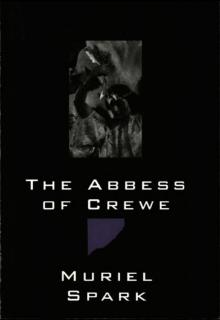 The Abbess of Crewe: A Modern Morality Tale
The Abbess of Crewe: A Modern Morality Tale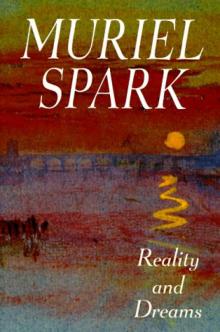 Reality and Dreams
Reality and Dreams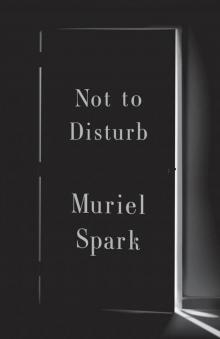 Not to Disturb
Not to Disturb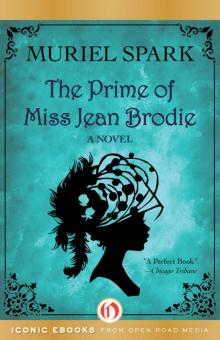 The Prime of Miss Jean Brodie
The Prime of Miss Jean Brodie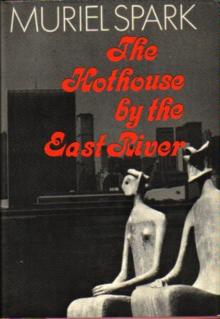 The Hothouse by the East River
The Hothouse by the East River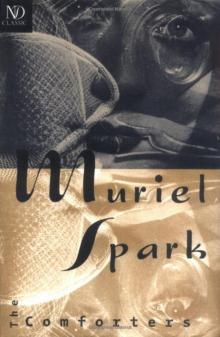 The Comforters
The Comforters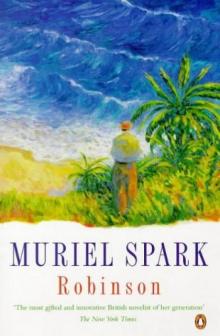 (1958) Robinson
(1958) Robinson Unknown
Unknown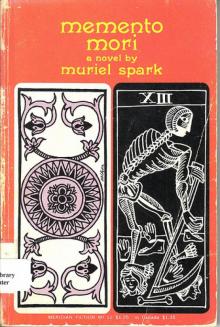 Memento Mori
Memento Mori The Finishing School
The Finishing School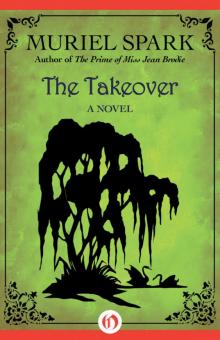 The Takeover
The Takeover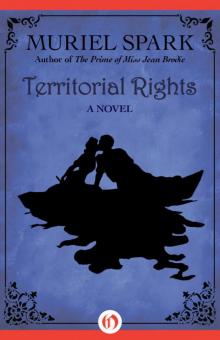 Territorial Rights
Territorial Rights The Complete Short Stories
The Complete Short Stories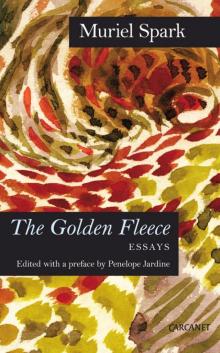 The Golden Fleece: Essays
The Golden Fleece: Essays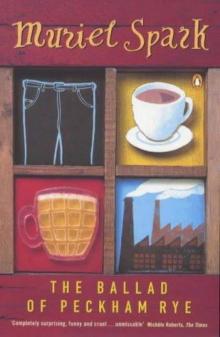 The Ballad of Peckham Rye
The Ballad of Peckham Rye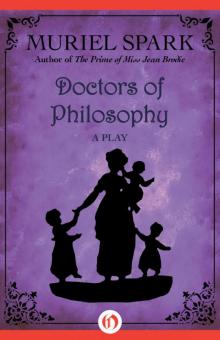 Doctors of Philosophy: A Play
Doctors of Philosophy: A Play The Mandelbaum Gate
The Mandelbaum Gate Loitering With Intent
Loitering With Intent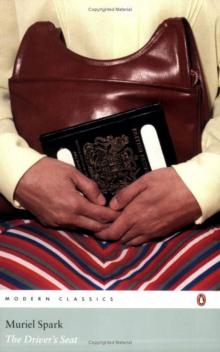 The Driver's Seat
The Driver's Seat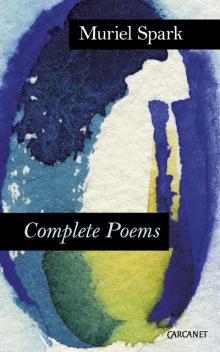 Complete Poems: Muriel Spark
Complete Poems: Muriel Spark Symposium
Symposium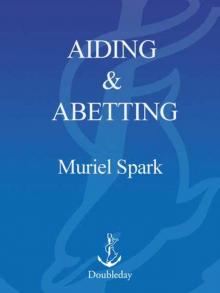 Aiding and Abetting
Aiding and Abetting The Golden Fleece
The Golden Fleece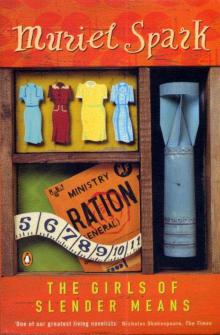 The Girls of Slender Means
The Girls of Slender Means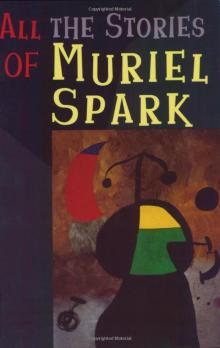 Alice Long’s Dachshunds
Alice Long’s Dachshunds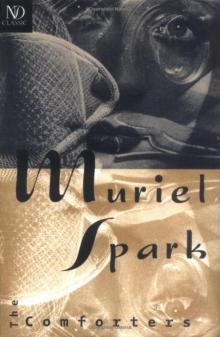 (1954) The Comforters
(1954) The Comforters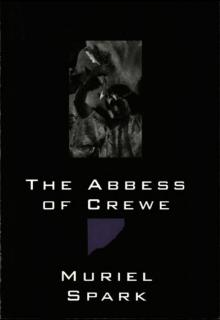 The Abbess of Crewe
The Abbess of Crewe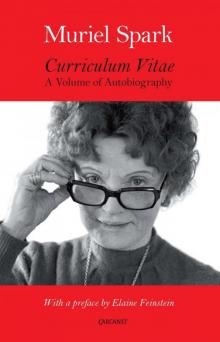 Curriculum Vitae
Curriculum Vitae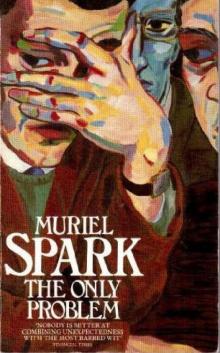 The Only Problem
The Only Problem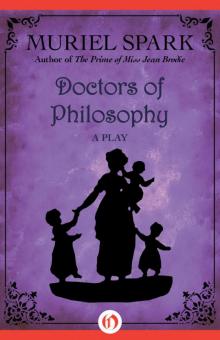 Doctors of Philosophy
Doctors of Philosophy